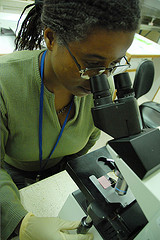News ticker: Beware salsa and guac, new White House HIV/AIDs strategy, NuvaRing lawsuit
 Here’s some new health headlines to mull over this week:
Here’s some new health headlines to mull over this week:
- Skip the chips, salsa and guac at restaurants this summer: about one in every 25 restaurant-related outbreaks of food-related illness between 1998 and 2008 were traced back to salsa and guacamole, according to a new Center for Disease Control report. Of all outbreaks related to both foods, 84 percent occured in restaurants. The major reasons behind the outbreaks? Storage temperature problems and unsanitary food handling by workers.
- The White House will unveil its long-awaited first national plan to reduce rates of HIV/AIDs infections tomorrow, one that will target spending on testing and prevention within communities with the highest rates of the disease. More than 1.1 million Americans have HIV, according to a White House document, and about 56,000 become infected each year.
- The Food and Drug Administration will review three anti-obesity drugs that may help people to more safely lose weight. Each pill manipulates different hormones and systems in the body to reduce appetite and satiety. None tested better than the rest, however, and while each did help with weight loss, each had various discouraging side effects including descreased concentration and nausea. Jason Halford, a health psychologist who consulted companies on the drugs, told the Associated Press: “We’re using combinations of old drugs with a very broad spectrum of pharmacotherapy, it’s very much the shotgun approach.”
- More reason to eat vitamins D and E: European researchers in three studies have found they might keep our minds and memories sharp and well-working. Low levels of vitamin D were linked to greater risk of dementia, high levels of vitamind E were linked to a lower risk of dementia, and high blood levels of vitamin D — which our skin produces naturally when exposed to the sun — were linked to a lower level of Parkinson’s disease.
- The makers of NuvaRing contraceptive are being sued by the estate of a Nebraska woman with the claim that the ring caused the blood clot that killed her just five months after she began using it. The suit, filed Monday, seeks damages from Merck & Co., Organanon BioSciences NV and other companies that manfacture and formerly manufactured the drug. It joins about 100 other lawsuits with similar claims linking blood clots, strokes and fatalities to the drug.
Photo credit: Jasoniam via Flickr.
Here's some new health headlines to mull



